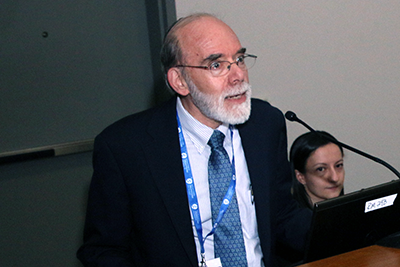To Google or Not to Google: How Much Do You Want to Know About Your Patient?

Are you Googling your patients’ names?
You may not be alone. According to a pilot survey of attending and resident physicians at a large academic medical center, 93 percent of attendees who responded to the survey (n=40) said they had ever Googled a patient’s name, and 94.1 percent of responding residents (n=32) said they had done so. Meanwhile, 89.6 percent of attendees said they had ever considered Googling a patient, and 100 percent of residents said they had done so.
The survey was reported by Liliya Gershengoren, M.D., M.P.H., at an Annual Meeting symposium titled, “Patient Targeted Googling: Oh! What a Tangled Web We Weave, When We First Practice to Deceive.”
The practice of Googling a patient’s name may be too easy to resist and may seem innocuous. But a panel of experts at yesterday’s session said Googling and other forms of collecting collateral information about a patient online raise a host of questions, ethical and clinical, about how that information may affect the physician-patient relationship and clinical care.
Glen O. Gabbard, M.D., discussed the impact of the Internet on the doctor-patient relationship and potential boundary violations. Paul Appelbaum, M.D. (pictured above), explored the ethical and legal implications of using a patient’s “digital phenotype”—which refers to the entirety of an individual’s online presence—as well as emerging technologies that may be used to track patients online in real time. Robert Boland, M.D., discussed the work of the American Association of Directors of Psychiatric Residency Training Task Force on Professionalism and the Internet. John Luo, M.D., an expert on psychiatry and informatics, concluded the session by Googling the name of a volunteer from the audience to show how revealing the Internet may be, for better or worse.
Experts agreed that the ease and availability of online information raises questions that are better addressed than ignored. Quoting an iconic line from the 1999 movie “Cruel Intentions,” Gershengoren said, “Everybody does it; it’s just that nobody talks about it.” She added, “Hopefully, today’s talk has given us a way to talk about it.”
(Image: David Hathcox)
|
|
|
|
|


